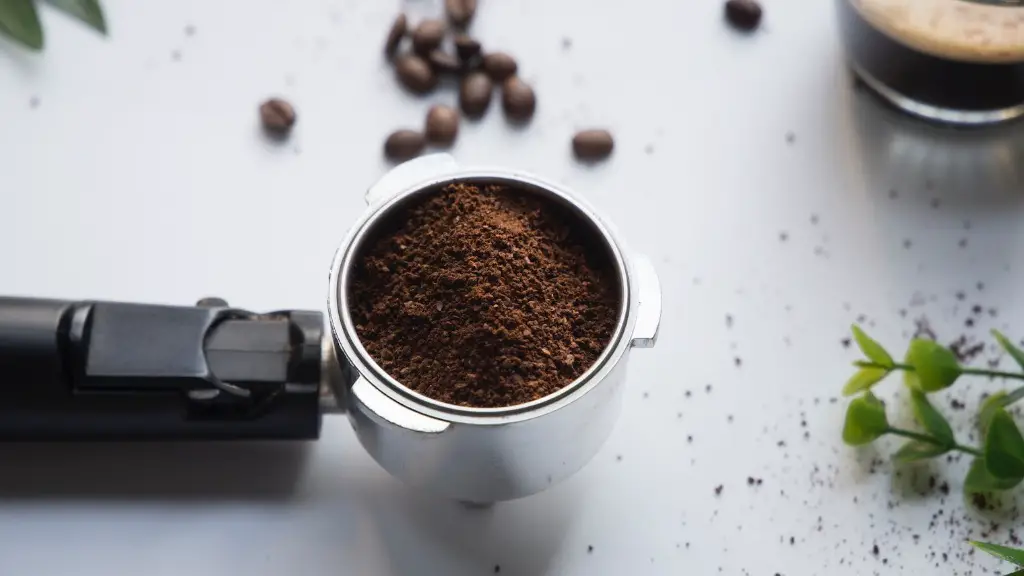Benefits of Coffee in Treating a Cold
When you have a cold, there are many possible treatments you can turn to. One of the well-known options is drinking coffee. In fact, this is an old remedy that people have used for centuries – even before the invention of aspirin. While it’s easy to sip on coffee to soothe a sore throat, it might be helpful to understand what else it can do to ease the life of a cold.
Caffeine is the key active ingredient in coffee and it is a stimulant to the central nervous system. Studies have found that it can reduce fatigue and exhaustion, which are common symptoms of a cold. Plus, caffeine can ease sinus pressure, lower the risk of developing headaches, and boost alertness.
Beyond the physical benefits, there’s also the psychological benefits of drinking coffee when you’re feeling under the weather. Caffeine has been associated with higher levels of excitement, which in turn can make you feel more comfortable and relaxed. Additionally, coffee can provide a distraction from the physical and emotional symptoms of a cold. You can often find comfort in performing a daily ritual, such as making and drinking coffee.
Ultimately, a cup of joe can improve your mental and physical health in some ways if you’re suffering with a cold. But there are some other points that are important to consider with this centuries’ old remedy before you start pouring yourself a cup.
Limitations of Coffee During a Cold
It’s easy to understand why people turn to coffee during a cold. While there are some health benefits associated with this old remedy, it’s important to know the limitations too. Caffeine has been found to increase the production of stress hormones, which can weaken the immune system in some cases.
Coffee is also a diuretic, meaning it can make you more dehydrated. This is the last thing you need if you’re feeling under the weather. So, even though a cup of coffee can bring increased alertness, it’s not wise to rely on it as a primary method of hydration.
Some people may experience increased anxiety after drinking too much coffee. As we all know, caffeine gives you a boost of energy and when you’re feeling run down, this can come as a shock to the system. As long as you stick to the recommended amount of coffee, which is no more than three to five cups per day, you’ll be just fine. However, it’s best to avoid coffee entirely if you’re already feeling restless.
While drinking coffee may have a range of benefits when you’re suffering from a cold, it’s important to understand the effects too. Make sure you don’t overindulge and stick to the recommended intake – you’ll then be able to enjoy the full range of benefits it can provide.
Pros and Cons of Using Coffee During a Cold
When you’re suffering from a cold, coffee has both pros and cons. It can help to elevate your mood, boost your energy levels and ease stress-like symptoms. On the other hand, it has been known to interfere with sleep and to dehydrate the body.
If you’re looking to drink coffee while still treating a cold, it’s important to find the right balance. Start slow by drinking one cup at a time and try to make sure it’s decaffeinated. Also, try to drink plenty of water too. This will help to replenish your body and to keep you hydrated.
Additionally, don’t forget to include caffeine-free beverages in your diet too. This can include herbal teas, vegetable soups, fruit juices and even smoothies. All of these are great for relieving cold symptoms and in some cases, even help to speed up recovery time.
When it comes to treating a cold, coffee can have both positives and negatives. Make sure to increase your intake slowly and limit other sources of caffeine. Try different home remedies and if you’re still feeling symptoms, it may be worth talking to your doctor.
Nutritional Considerations of Coffee During a Cold
There are some nutritional considerations when it comes to drinking coffee while running a cold. Firstly, it’s important to note that coffee is not a nutritional replacement. It’s better to rely on other sources of nutrition such as fruit, vegetables and healthy proteins.
Adding sugar or cream to your coffee can also be unhealthy for your system, especially if you already have a cold. These added calories can have an adverse affect on your weight, increase inflammation and weaken your energy levels.
So, when drinking coffee, try and reduce your intake of sugar and cream or opt for healthier alternatives such as honey or plant-based milk. This can also help to reduce coffee-induced acidity, which can have a negative effect on your stomach and digestion during a cold.
Finally, coffee can also be acidic and adding too much can cause heartburn or indigestion. Stick to natural sweeteners and low-acid options like Arabica coffee beans. Aim to enjoy your cup of coffee in moderation and drink plenty of water in between.
Medication and Caffeine Consumption During a Cold
When it comes to colds, it’s also important to know how caffeine interacts with medication. Many over-the-counter drugs contain caffeine and if mixed with coffee, can lead to unpleasant symptoms.
Plus, caffeine has been known to interfere with some antibiotics. So, if you’re taking a course of antibiotics, it’s best to avoid coffee or consult with your doctor to see what the best course of action is.
It’s also worth noting that mixing coffee with decongestants can have dangerous side effects, including a rapid heartbeat and jitters. These medicines can already be stimulating and when mixed with coffee, can be even more powerful.
Before self-medicating when you have a cold, it’s important to double check the ingredients of your medication and then try to stick to caffeine-free beverages. And if you’re still unsure, seek advice from your doctor – they’ll be able to provide you with the best advice.
Coffee as a Palliative for a Cold
When it comes to treating a cold, less is often more. Coffee can provide respite for some of the physical and emotional symptoms, but it is not to be relied upon as a cure. The key is to make sure you drink it in moderation, opt for caffeine-free beverages, and look after your overall health.
You can still enjoy coffee during a cold, but make sure it’s within your daily limits. Prioritise hydration, rest, and nutrition before anything else. And be sure to follow up with your doctor if your cold persists or if you have any doubts about what it right for you.
Coffee can be a great palliative and provide relief from some of the discomforts of a cold. As long as you’re careful and aware of the potential risks, it can be a pleasant and helpful drink during this difficult time.





